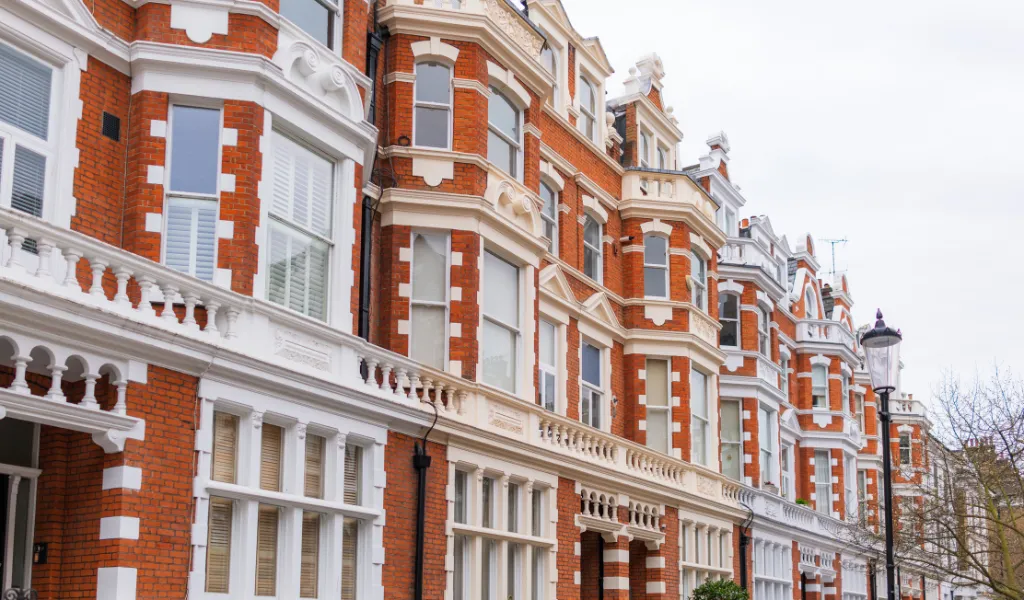Most people are searching for methods to manage their estate. They want to leave behind wealth for their children and loved ones. It is important to protect family assets during your lifetime. You can do so through an asset protection trust. Therefore, you should understand how it works and its pros and cons. Also, you should know if selling property held in trust UK is possible. This guide will cover everything you need to know about placing your property into a trust.
First, let us discuss the definition of a trust.
What is a Trust?
Simply, a trust is a way to manage assets. These include cash, investments, land, properties, and assets. There are several types of trusts in the UK, and tax applies differently to each one.
A trust involves three parties:
Settlor: They are the person who places their assets into the trust.
Trustee: They are the individual who oversee and manage the trust.
Beneficiary: They are the person who receives the benefits of the trust.
Depending on the wishes of the settlor, trusts are either revocable or irrevocable. The settlor can modify or terminate a revocable trust whenever they want. Whereas they cannot do so in case of an irrevocable trust, as it is a permanent arrangement.
Usually, trusts are a method to protect assets and transfer them to future generations according to the wishes of the owner.

Why Put a House into a Trust?
An excellent way to ensure that the property will remain the in the family after the passing of the owner is to put it into a trust. Through a trust, the management and distribution of the home takes place according to the owner’s wishes. Moreover, it protects the property from taxes and probate.
The property owner has the right to appoint a trustee to manage their property and its assets. They can also decide who the beneficiaries are and what they will receive after the passing of the owner. Then, the house and its assets go to the right people. Also, through a trust, you gain flexibility as to the usage of the house and the distribution of its assets. Then, what is the process of selling property held in trust UK?
How to Place Your Property in a Trust?
Following is the step-by-step process of putting your home in a trust:
- The initial step requires you to appoint a trustee. Make sure they are someone you trust enough to manage this arrangement. For example, an experienced solicitor or a family member.
- Then, you need to create the trust deed. This legal document contains the terms of the trust. For example, who the beneficiaries of this trust are and what they are going to receive.
- Next, you must transfer your property into the trust. For this, you need to sign a transfer deed. Also, you should register it with the Land Registry.
- After transferring your property, you must pay any associated costs. For example, stamp duty, registration fees, and legal fees.
- Then, you should notify HMRC regarding the transfer as the Stamp Duty Land Tax may apply.
- Completing the trust deed involves the objectives of the trust and the roles. Also, it includes the trustees’ responsibilities and how the trust can end.
- It is crucial that you appoint the trustees in writing and state their responsibilities in the trust deed.
- It is the responsibility of the trustee to make sure that the administration of the trust is according to its terms. They must see to it that the beneficiaries receive their rightful shares.
- The last step is for the trustees to keep records of all decisions and transactions properly and accurately.
What are the Advantages of Putting your Property in a Trust?
Following are the benefits of placing your home in a trust:
Avoiding Probate
Usually, if you have a will, then after your passing your estate goes through probate. Which is an expensive and time-consuming process. Whereas if you transfer your house into a trust, then you decide the beneficiaries. Therefore, there is no need for it to go through probate. As a result, you avoid these costs and delays. So, is selling property held in trust UK possible?
Privacy
Since a will is a public record, anyone can check to see whom you gave away your property. This is not the case with a trust. A trust is a private arrangement and people cannot simply find out to whom you gave your property.
Protection
Through a trust, you create a legal separation between yourself and your property. This means that your home has protection from creditors, claims, and legal action. However, please note that there is no guarantee that it will work.
Control and Flexibility
You can become the trustee by giving your property away to the trust. This way, you gain more control over the distribution of your property. To elaborate, let us look at an example. Suppose you set an age restriction. Then, the beneficiary gains controls only after a specific age. Or you can outline what you want to them to achieve before they can gain control. You can specify all this within a trust.
Inheritance Tax Planning
You can use your trust to reduce tax. However, you enter a complex area of finance and law. It is important for you to consider the legal implications of your actions. You should reach out for expert advice from a solicitor. Therefore, is selling property held in trust UK a smart idea?
Psychological and Financial Benefits
Another benefit is that you no longer have the financial or psychological burden of owning property. This is especially true if you can still live on this property.

What are the Possible Disadvantages of Placing Your Home in a Trust?
Following are the downsides to putting your property in a trust:
Loss of Control
Even though you gain more control when it comes to flexibility, you will lose control of the property. This is because you will give up direct ownership of your home. Yes, you can become a trustee. Yet, you must appoint another trustee to collaborate with you. The main purpose of the trust is to transfer your property to your beneficiaries through this arrangement.
Costs
You will have to incur admin costs when setting up a trust. For example, legal fees. In certain cases, you may end up paying maintenance costs.
Inflexibility
Once you establish a trust, it is difficult to change it. In fact, it is impossible in certain situations. Before you set up the trust, it is crucial for you to have full awareness of any inflexibilities. In the past it has happened that a trust was set up and the legal wordings did not allow for it to unwind.
Tax Liability
Although trusts provide you with plenty of tax benefits, they come bearing tax implications as well. You should know that there are complex tax rules. Furthermore, they have their own positions for capital gains tax, income, and inheritance tax. Other tax implications apply to the diverse types of trusts. What is the step-by-step process of selling property held in trust UK?
Complexity
Undoubtedly, setting up and managing the trust is a complex matter. That is why you require professional help. You should not set up a trust without getting legal and financial advice simultaneously. As a result, these add to your expenses.
Financial Products
Another drawback is that there is a possibility of an impact on home insurance and mortgage. In case there is a mortgage on the property, then you will face difficulty in doing it. Additionally, by placing your property in a trust, it makes it impossible to take out a mortgage later.
How to Decide on the Right Type of Trust for your Home
It is vital that you seek expert financial advice and legal advice simultaneously. To get your message across clearly in the trust, you need a solicitor. They have excellent trust wording skills and knowledge of laws. Also, you require a financial advisor. They will show you the financial consequences of every course of action you can take. This applies to both you and your beneficiaries. Then, what is the process of selling property held in trust UK?
Thus, you must explore all the available options and consider the benefits and drawbacks of each.
Surely, you have come across the advantages of placing your property into a trust to avoid care fees. However, that is not necessarily the case. It is not so straightforward. You will face drawbacks and implications. Therefore, seeking expert advice is necessary. It is important to keep your eyes open to the consequences of trying to avoid care fees.
Is it Difficult to Sell a Property that is in a Trust?
Placing your home in a trust can affect your ability to sell it later. Nevertheless, you will find that most trust set ups allow you to sell the property. Trustees can sell the house and then buy another one for you to reside in with the proceeds. Therefore, it is crucial to set up the trust properly. You need to make sure that the statements are accurate. A legal professional will help you consider all advantages and drawbacks of setting up a trust. Please note that it is essential that you reach out for expert advice.
What is the Process of Selling Property Held in Trust UK?
Selling a home that is placed inside a trust is not so different from selling a standard property. Following are the steps to sell your house that you put into a trust:
To make sure the trustee can act on the beneficiary’s behalf to sell the property, the documents must be verified. In case the trust deed mentions nothing, then it is implied they have the power in most situations.
It is the responsibility of the trustee to decide how they are going to sell the house. If they sell through an auction or an estate agent, they will need to view the documents for confirmation.
For this, you need to show proof that the trust is valid to the title company. Furthermore, you may require additional documents. If necessary, you may need to involve a solicitor. Hence, you should know the process of selling property held in trust UK.
You require the trustee’s signature to sell the home. Once the proceeds go into the trust, the trustee decides how to distribute them. They can distribute them however they want. Or they can do it according to whatever the trust outlines.
Can You Avoid Care Home Fees by Putting Your Property into a Trust?
It is not a guarantee that by transferring your home into a trust, you can avoid care home fees. It is a possibility, but it is not a foolproof plan. If the local authority believes that your prior financial decisions were made to avoid care home fees, then they can challenge them. This is called deliberate asset deprivation. Now, you know the process of selling property held in trust UK.
If you deliberately deprived yourself of an asset, then they can find out. In this case, they will treat you as if you still have that gifted asset. This means that the recipient of the gift, which is you, may need to pay the fees.
Additionally, you may not want to use the value of your property to pay for care home fees in the future. The future is unpredictable. For all you know, you will decide that you want to stay in your house and require support to stay as independent as you possibly can.
To pay for that care, you will need the value of your property. This is a personal preference. You cannot take out a later life mortgage to pay for it if you have already put your house into a trust.
Is It Possible to Transfer Property into a Trust as a Gift or to Your Children?
When it comes to the transference of your property, you can do as you wish. You have the right to give it away or place it in a trust. However, each situation has its own tax implications. It all depends on how you do it and your reason for doing it. Furthermore, if you are still gaining a benefit from the property, it will have an impact. If you are trying to avoid care fees or tax implications, then make sure you know which is the best option for you. Before you decide, you should reach out for legal advice.
Can You Still Live in Your House if it is in a Trust?
The short answer is yes, you can. For your inheritance tax positing, this is going to have implications. It is not the ideal solution if you are planning for inheritance tax.
Unless you pay market rent, living in your house after placing it in a trust makes it part of your estate. There are other ways to get around it. It is best to reach out for financial and legal advice to find the right approach to your circumstances. Therefore, it is important to understand the process of selling property held in trust UK.
What are the Alternatives to Placing Your House in a Trust?
If you are looking for options other than a trust, then the purpose of placing your home will determine it. Through a trust, you simply achieve your goal. Most people tend to do so that their property’s value is not used for care fees.
However, it is not necessarily the right option for you. For example, the local authority can consider it as a ‘deliberate asset deprivation’. Therefore, you should consider other financial planning options if you are trying to reduce the cost of your care fees. Or if you are leaving an inheritance for your family members.
Conclusion
To conclude, you can transfer your property into a trust to make sure it goes into the right hands after your passing. There are plenty of benefits to setting up a trust for your home. However, you should know that there are disadvantages as well. Before you decide to place your property in a trust, make sure you understand the tax implications. You can sell your property after placing it into a trust. Nevertheless, it is not so straightforward. It is best to reach out for expert advice before taking any steps.
To conclude, as an Airbnb host, you may need to report your income. It is all dependent upon your circumstances and the amount of income you earn per year. If it crosses the specific threshold, then you must report it and pay tax. There is no need to stress, as you can reduce your tax liability with various methods. Furthermore, there are plenty of advantages to running an Airbnb business in the UK. It is ideal to reach out for expert advice before deciding to go down this road.








